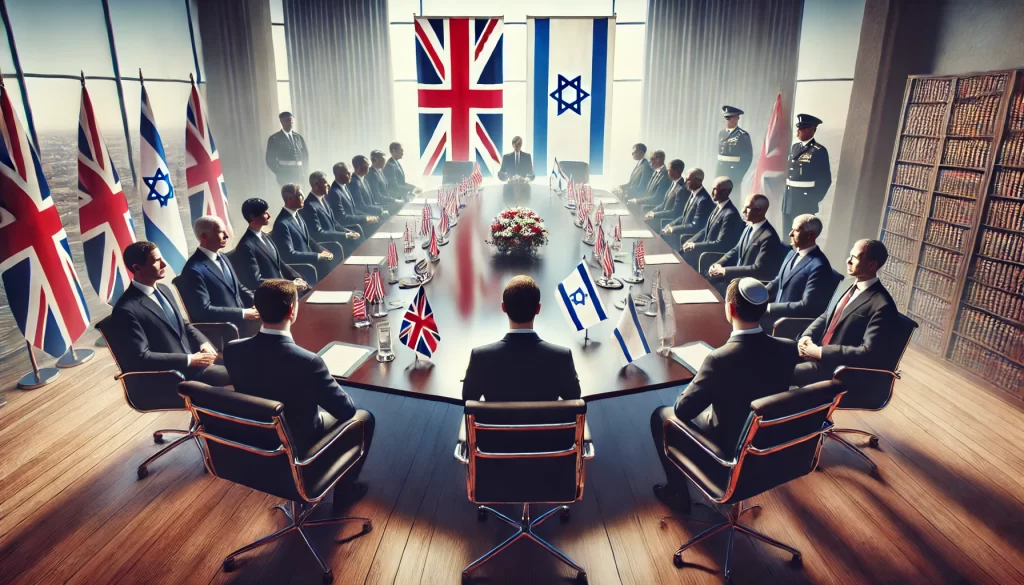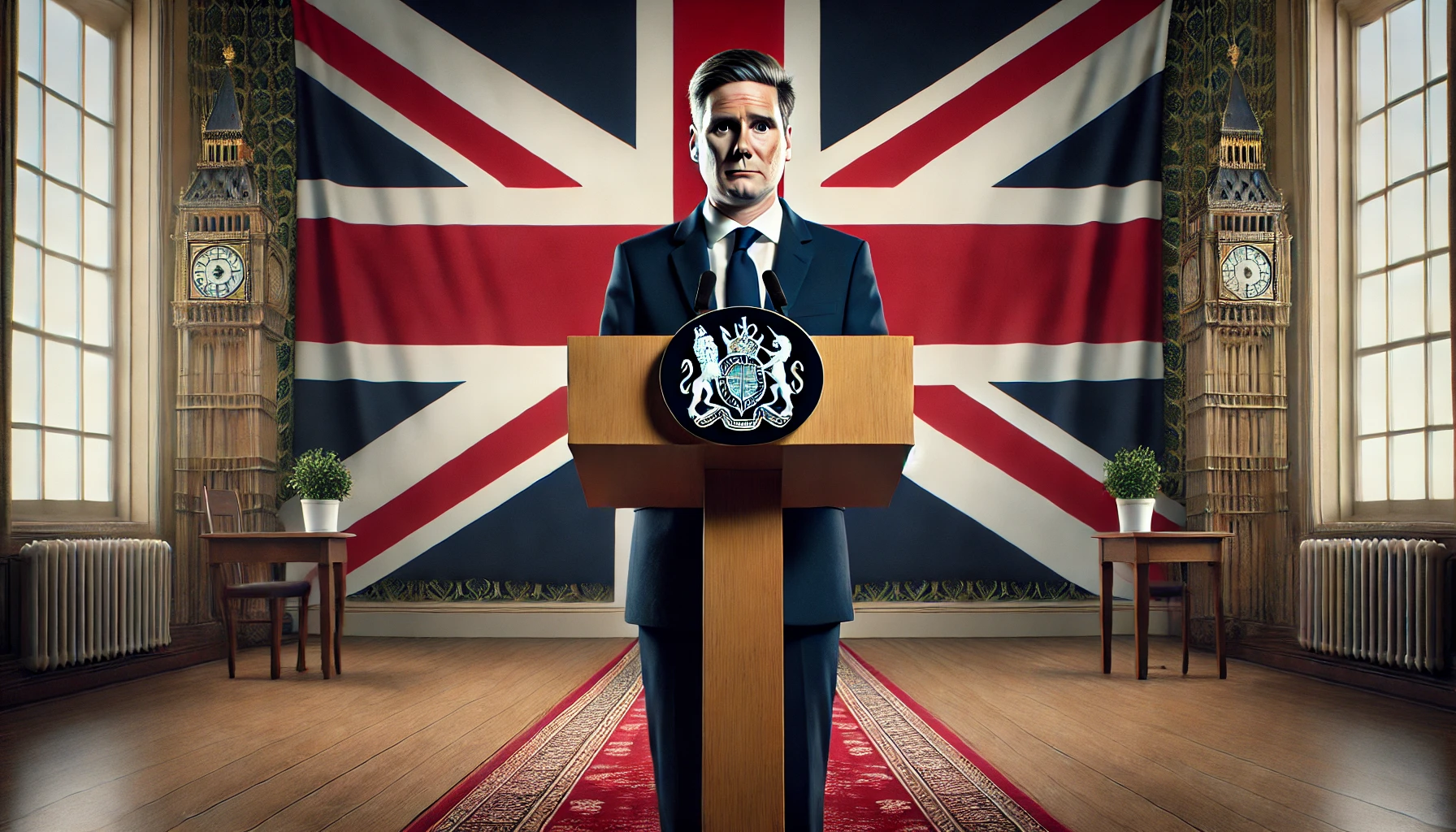Overview
Britain’s new Labour government, led by Prime Minister Keir Starmer, has announced a significant policy shift by deciding not to challenge the International Criminal Court (ICC) arrest warrants for Israeli leaders. This move reverses the previous government’s stance and could have substantial implications for international relations and Britain’s approach to the Middle East.
Background
The ICC prosecutor, Karim Khan, announced in May that he was seeking arrest warrants for Israeli Prime Minister Benjamin Netanyahu and Israeli Defense Minister Yoav Gallant for alleged war crimes, including starvation of civilians and intentionally directing attacks against civilian populations during the Gaza conflict. The prosecutor also named Hamas leaders Yahya Sinwar, Mohammed Deif, and Ismail Haniyeh for alleged crimes such as murder, hostage-taking, rape, sexual assault, and torture
The conflict has resulted in significant casualties on both sides. According to the Gaza Ministry of Health, more than 39,000 Palestinians, primarily women and children, have been killed. On the other side, about 1,200 Israelis, including soldiers and civilians, were killed in the October attack by Hamas.
The previous British government under Prime Minister Rishi Sunak had planned to challenge the ICC’s jurisdiction over Israeli citizens. However, Starmer’s administration has opted not to pursue this challenge.
Government’s Position
A spokeswoman for 10 Downing Street explained the decision: “On the ICC submission, I can confirm the government will not be pursuing [the proposal] in line with our long-standing position that this is a matter for the court to decide on.” This indicates that the British government will not interfere with the ICC’s processes, allowing the court to determine the validity of the arrest warrants independently.
International Reactions
The decision has created a divergence between Britain and the United States. President Joe Biden has criticized the potential arrest warrants, calling them “outrageous” and asserting that “there is no equivalence—none—between Israel and Hamas.” The Biden administration opposes the ICC’s move, viewing it as unfairly targeting Israel.

Israeli officials have also expressed strong disapproval. An unnamed senior Israeli official stated, “Israel is deeply disappointed. This is a fundamentally wrong decision; it is contrary to justice and truth and violates the right of all democracies to fight terrorism.” Prime Minister Netanyahu condemned the ICC’s actions as a “travesty of justice” and insisted that it would not deter Israel from continuing its efforts against Hamas.
Changes in British Policy
This decision is part of a broader shift in Britain’s policy towards the Middle East under the new Labour government. Foreign Secretary David Lammy has indicated that further changes are forthcoming, including a review of Israel’s compliance with international law. Lammy mentioned the possibility of banning certain arms sales to Israel, specifically “offensive” weapons, while continuing to allow the sale of “defensive” ones.
Lammy also announced that Britain would resume funding the United Nations Relief and Works Agency (UNRWA) for Palestinian refugees, reversing the previous government’s suspension of funds due to allegations of involvement in Hamas activities.
Domestic and International Reactions
Domestically, the decision has garnered mixed reactions. Pro-Palestinian organizations have welcomed the move. Zaki Sarraf, a legal officer for the International Centre for Justice for Palestinians, said, “Respecting the jurisdiction and independence of the ICC is the least the Labour government can do to demonstrate a genuine commitment to justice and accountability.”
Conversely, pro-Israeli groups have expressed concern. The Board of Deputies of British Jews and the Jewish Leadership Council issued a joint statement saying, “We are concerned that the cumulative effect of these announcements, in quick succession, signal a significant shift in policy, away from Israel being a key UK ally. This would not only be a strategic error but a moral one.”
Conclusion
Britain’s decision to drop its challenge to the ICC arrest warrants for Israeli leaders marks a notable change in its foreign policy. This move aligns with Labour’s commitment to upholding international law and the independence of the ICC but creates tensions with key allies like the United States and Israel. As Britain continues to reassess its policies in the Middle East, the international community will be closely watching the implications of these changes on global diplomatic relations.
This article is based on the following articles:
https://www.washingtonpost.com/world/2024/07/26/icc-uk-israel-warrants-objections-starmer

What is the International Criminal Court (ICC)?
The International Criminal Court (ICC) is an international tribunal located in The Hague, Netherlands. It was established in 2002 to prosecute individuals for international crimes such as genocide, crimes against humanity, and war crimes. The ICC operates independently from the United Nations and aims to hold accountable those responsible for serious offenses that affect the international community. The court can only intervene when national courts are unwilling or unable to prosecute criminals.
What is the Conflict Between Israel and Hamas?
The conflict between Israel and Hamas is a long-standing and complex issue rooted in historical, political, and territorial disputes. Hamas is a Palestinian militant organization that controls the Gaza Strip, a small region on the eastern coast of the Mediterranean Sea. The conflict often results in violent confrontations, with both sides suffering casualties. Israel accuses Hamas of terrorism, while Hamas claims to be fighting for Palestinian rights and independence. The recent conflict mentioned in the article resulted in significant loss of life and widespread destruction.
Who are the Key Figures Mentioned?
- Benjamin Netanyahu: He is the Prime Minister of Israel and has served in this role for multiple terms. Netanyahu is a controversial figure, known for his strong stance against Hamas and his efforts to ensure Israel’s security.
- Yoav Gallant: He is the Defense Minister of Israel. In this role, Gallant is responsible for overseeing the country’s military operations and defense strategies.
- Karim Khan: He is the chief prosecutor of the ICC. Khan’s job is to investigate and prosecute individuals accused of committing serious international crimes.
- Keir Starmer: He is the Prime Minister of the United Kingdom and leader of the Labour Party. Before becoming Prime Minister, Starmer was a human rights attorney and has a background in law.
- David Lammy: He is the Foreign Secretary of the United Kingdom. Lammy handles Britain’s international relations and oversees the country’s foreign policies.
- Hamas Leaders: The article mentions Yahya Sinwar, Mohammed Deif, and Ismail Haniyeh. These individuals are senior leaders of Hamas, responsible for the organization’s political and military strategies.
What are War Crimes and Crimes Against Humanity?
War crimes are serious violations of the laws of war that include acts such as intentionally killing civilians, taking hostages, and destroying property without military necessity. Crimes against humanity are grave offenses that include widespread or systematic attacks against civilians, such as murder, enslavement, torture, and rape. Both types of crimes are prosecuted by international bodies like the ICC to ensure justice and accountability.
What is the Role of the United Nations Relief and Works Agency (UNRWA)?
The UNRWA is a United Nations agency established in 1949 to provide assistance and protection to Palestinian refugees. It operates in the Gaza Strip, the West Bank, Jordan, Lebanon, and Syria. The agency offers services such as education, healthcare, and social services to millions of Palestinian refugees. The UNRWA plays a crucial role in supporting vulnerable populations affected by the ongoing conflict.
What is the Significance of Britain’s Decision?
Britain’s decision to drop its challenge to the ICC arrest warrants is significant because it signals a change in its foreign policy. By not opposing the ICC’s actions, Britain is showing support for the rule of law and the independence of international courts. This decision also reflects a shift in how Britain interacts with Israel and addresses issues in the Middle East, potentially influencing diplomatic relations and international politics.
Why is the US Involved?
The United States is a close ally of Israel and has historically supported its right to defend itself against attacks. The US often plays a role in Middle Eastern politics, including peace negotiations and conflict resolution efforts. The Biden administration’s opposition to the ICC warrants highlights the US’s commitment to supporting Israel and maintaining stability in the region.

Debate/Essay Questions
- Should the International Criminal Court (ICC) have the authority to issue arrest warrants for leaders of sovereign nations?
- Does the ICC’s involvement in conflicts like the one between Israel and Hamas help or hinder the peace process?
Please subscribe to Insight Fortnight, our biweekly newsletter!
